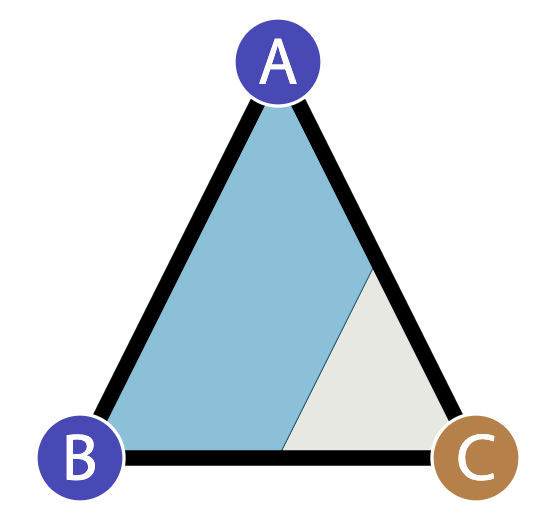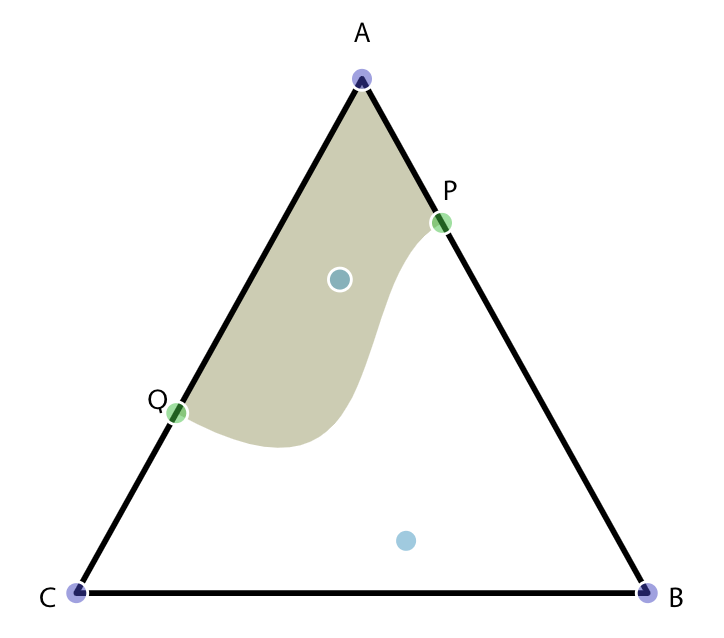Limits are good. Limits, at their base, are a way of ensuring that the scene has focus. When we set up a challenge at all, we are putting limits on the scene in general - limits of saying "the scene is now about this problem, and it needs to be addressed." We're defining what the actual problem is, and to some extent unavoidably defining the sort of things that can be done to address the problem.
But it's important to recognize when we take these definitions too far.
I've been playing a roleplaying game outside of Storium recently, using some pre-prepared scenarios that I found, and I've been struck by something in reading those scenarios: Oftentimes, they focus extensively on what definitely won't work. They spend a lot of time discussing why the players should absolutely not try a particular tactic with a situation, and how many brick walls can be thrown in their way should they dare to attempt such a thing. They're not quite set up to allow only one path forward, but they dwell a lot on why solutions A, B, C, D, E, and F are all terrible ideas that will only increase the scenario's difficulty. They show the walls, not the paths forward.
I've noticed a similar mindset subtly sneaking into Storium games at times. In our challenge setups or narration, we can sometimes spend time focusing on what won't work - on the walls set up in the way of particular solutions. Maybe we show the player characters trying a solution and discovering it won't work in the opening narration. Maybe we just describe something as impossible on the card or in the outcomes or in the narration.
Sometimes, this is fine. Sometimes, this is appropriate.
But it is definitely something we should question.
Storium works best, I have found, when players have enough information to focus their writing without limiting their ideas. That is: The problem is well-defined, but the solutions are left as open as possible given the problem at hand.
If the problem is a powerful wizard who the heroes need to get past to get to their goal, the solutions could potentially involve all sorts of things - maybe the heroes manage to fight the wizard and drive him away, maybe they evade his attacks and race beyond him into the fortress. Sometimes, limiting those options is perfectly appropriate...but it's important to be careful just how far you take the limitations. For instance, it might be appropriate to say that the party has to fight the wizard, because he's set up a magical barrier over the exit or because it's just too dangerous with him raining magic around the area. But further defining that the wizard is absolutely invulnerable to non-magical attacks himself is probably going to take it too far - it'll most likely make players of non-magical characters struggle a bit to figure out how to participate in the fight. Or, alternately, it might be appropriate to say that the wizard can't be killed and the characters need to escape - the wizard is just too powerful and his defenses too strong. But it'd take it too far to say that his attacks are unstoppable and his defenses are so strong he can't even be shaken by the characters at all, most likely, because again, it seriously limits what players can write and the ideas they can come up with for the scene. Some characters might have things they can realistically write to make just running away interesting, but others might really need to be able to provide some cover for the others or manage to disrupt the wizard for just a moment (or at least, attempt to do so and get turned aside, if they're playing a Weakness).
Similarly, consider an investigation. Maybe you're asking players to find information on a criminal gang that has troubled the area. That's fine. But if you go to the extent of saying that the other gangs in the area definitely won't share their information, or that police contacts are totally mystified and have no knowledge of the gang at all, well, that's probably going to cause people some trouble. You're limiting the ways that players can write the scene, and that's likely to make it tougher for them to come up with ideas.
Remember: Storium is about helping people write. The things that you put in your narration should encourage writing, not oppose it.
That's not to say that you should totally avoid limitations. Yes, there are times that they fit the story. If it's expressly established that the gang is totally new to the area, for instance, it makes sense that the heroes might not be able to trust contacts that would be working from existing knowledge...but how are the heroes able to get the information? Word the challenge in such a way that you reveal the possibilities rather than set up the walls. And don't just give one option! Show a wider field of openings, something that lets the players still have room to get creative on their own.
And remember to ask yourself: What is this challenge actually about?
In the case of the gang, for instance: Is the question really about who the heroes are able to go to for the information they need? Or is it just about what they are able to find out? If the latter...does it really matter whether they are able to use their contacts with the police? Or is the question just about whether they find information about the gang in the first place?
I want to be clear: Sometimes it does matter how the players are able to accomplish something. Sometimes that can be a problem you need to address as narrator. Sometimes it can cause trouble for a plot if players are allowed to do things a certain way, even if that way fulfills the overall concept of the challenge. That's very true.
But not all the time.
Not even the number of times we as narrators think it is true.
So...when you're setting a challenge up, take a good look over the card and narration associated with it. Look over what you've written, and ask yourself:
- Have I set up any limitations here I didn't intend to? Are there places where I suggest something is impossible where I didn't mean to?
- Have I set up limitations that I intended to...but that on second thought, really don't matter? Are there places where I have put limits that will make my players struggle to write, rather than providing useful focus?







